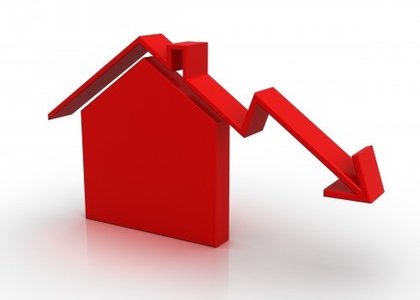New data from NAR shows that pending home sales continued their downward progression in September.
Pending home sales fell once again in September, with the Pending Home Sales Index from the National Association of Realtors (NAR) falling 5.6 percent from August to September.
In addition to being the fourth straight month of declines for the Pending Home Sales Index, September’s reading of 101.6 is also a 1.2 percent decline from September 2012.
Homes Sales on the Decline in 2013
So what’s behind this fall in pending home sales? As NAR noted, rising mortgage rates and falling housing affordability are two of the most notable culprits, though Lawrence Yun, NAR’s chief economist, said economic uncertainty revolving around the government shutdown also played a role.
“Government and contract workers were on the sidelines with growing insecurity over lawmakers’ inability to agree on a budget,” he said. “A broader hit on consumer confidence from general uncertainty also curbs major expenditures such as home purchases.”
Indeed, this is the first time in 29 months that pending home sales did not rise above their yearly mark, which Yun said does not bode well for home sales heading into 2014.
“This tells us to expect lower home sales for the fourth quarter, with a flat trend going into 2014,” Yun said. “Even so, ongoing inventory shortages will continue to lift home prices, though at a slower single-digit growth rate next year.”
Regional Divergences in the Pending Home Sales Index
Of course, there was notable variation with the Pending Home Sales Index based on region:
- Pending sales in the Northeast dropped 9.6 percent from August to September, and are 6.4 percent below a year ago.
- In the Midwest, pending sales fell 8.3 percent monthly, but were still up 5.7 percent from September 2012.
- In the South, sales slipped 0.4 percent monthly, but were 2.0 percent above a year ago.
- And finally, pending sales in the West dropped 9.0 percent in September, and were 9.8 percent lower than September 2012.
Although sales are slowing as the year draws to a close, NAR is still expecting existing-home sales to increase 10 percent over 2012 and total more than 5.1 million for the year, though sales are expected to hold even through 2014. Median existing-home price, meanwhile, is expected to rise 11 to 11.5 percent, and taper somewhat to 5-6 percent in 2014.
We should mention an essential silver lining – new home sales are still historically low. Typically, new homes and existing homes sell at an equal pace, but with all of the overbuilding that occurred during the boom years, new home sales collapsed in 2008, creating what Bill McBride of Calculated Risk has label “The Distressing Gap.” With existing-home sales falling, does this mean that new home sales will rise and pick up the slack? We’ll have to wait and see!

